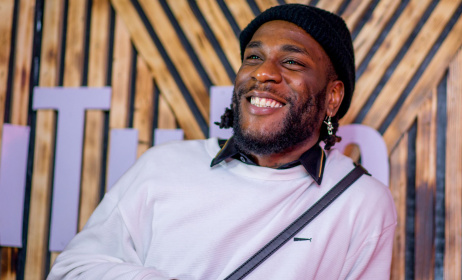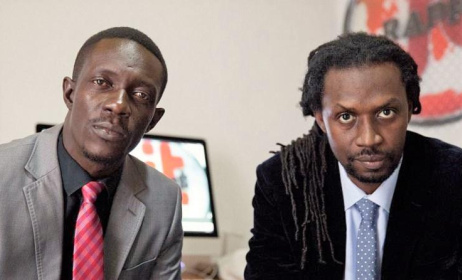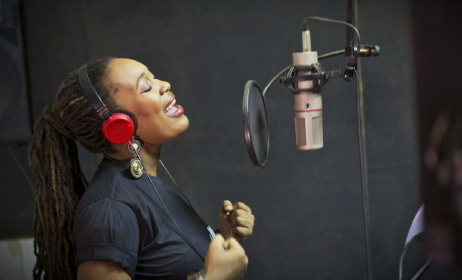Freemuse report exposes shocking realities facing female musicians
A disturbing report released by Freemuse in partnership with Danish research institute KVINFO(link is external) has ranked Egypt as the world's leading country of artistic rights violations against women.
Titled Creativity Wronged: How Women’s Right to Artistic Freedom Is Denied and Marginalised, the report is based on five years of research and lists Afghanistan, Bolivia, Cambodia, Egypt, India, Iran, Japan, Nigeria, Pakistan, Saudi Arabia and Turkey as the main "countries of concern".
It says women account for 89% of all artistic violations in Egypt. The study also finds that the North African country contributed 20% of all artist expression violations globally.
“Sexual harassment and violence against women is extensive and part of everyday life in Egypt,” the report says. “Women artists have become particularly vulnerable to charges related to their art, which are often justified by accusations of indecency and violating public morals.”
The report was released just days before 45-year-old Egyptian actress Rania Youssef was charged with "inciting debauchery" for wearing a revealing dress at the Cairo International Film Festival. She could be jailed for up to five years if found guilty, the BBC reported. Last year, Egyptian singer Shaimaa Ahmed was sentenced to a year in prison for eating a banana in the ‘I Have Issues’ video.
Other African countries that have been mentioned in the report include South Africa, Uganda, Mauritania, Morocco, Senegal, Ghana, Somaliland and Burundi. A law in Burundi that prohibits women from playing drums makes a central appearance in the report, which also highlights a 2016 incident in Somaliland where the Minister of Religious Affairs, Sheikh Khalil Abdilahi Ahmed, ordered the cancellation of a concert by female singer Nasteexo Indho. It is believed that religious leaders approached the minister with ‘indecent’ video recordings of the singer’s previous performances in Europe.
Meanwhile, the report says the governments of the 11 countries that are most prominently featured in the report are responsible for 65% of all violations on female artistic rights. The other institutions accountable for high incidents of artistic rights violations include social media platforms (16%), artistic communities such as festivals and galleries (11%) and private education institutions (8%).
“These violations show that the protection guaranteed to women artists globally has not yet met the satisfactory level of implementation in national contexts, while a number of states still remain tied to discriminatory laws,” the report says.
The research also reveals that 40% women working in the music sector are affected. They are followed by women in the visual arts and dance, theatre and literature sectors at 27% and 19% respectively.
“Women remain outnumbered in the cultural sector, stifled in the name of religion or tradition, restricted by strict domestic legislations, and exposed to sexist and misogynist comments and various forms of harassment,” the report says.
In addition, Freemuse says 34% of female artists have been threatened, harassed or persecuted. Seventeen percent have been imprisoned or detained, 3% physically attacked, 3% prosecuted, sanctioned or fined, 1% were killed and 2% of artworks featuring women or made by women were destroyed or damaged.
“In a number of countries, many women making a living as artists, or wishing to engage in artistic careers, particularly in the area of cinema, theatre, dance and music, continue to be labelled as ‘loose’ or ‘prostitutes’,” the report says.
Freemuse urges governments to “formulate comprehensive laws that tackle gender discrimination in all its forms and amend existing laws that facilitate gender discrimination”.
It also challenges NGOs human rights bodies to “allocate resources to effectively monitor and document more systematically violations of the right to freedom of artistic expression and creativity, taking into consideration discrimination and bias against women and women artists".
Read the full report here(link is external).





























Commentaires
s'identifier or register to post comments